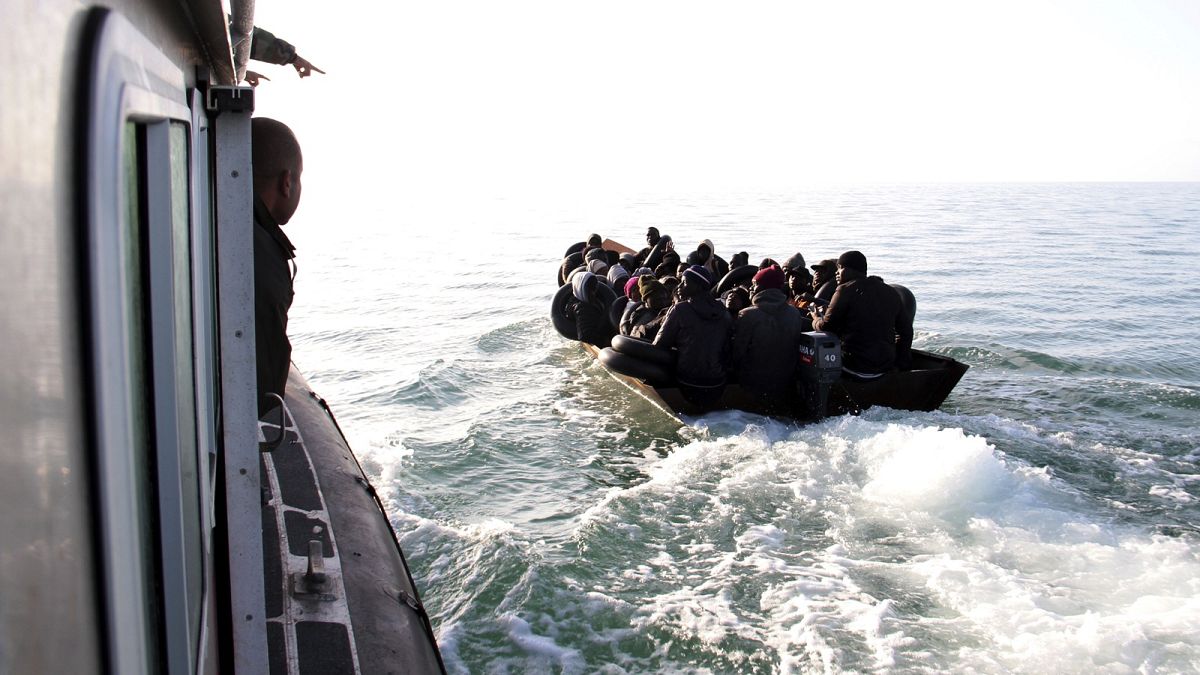The European Commission is seeking to toughen penalties for human traffickers as the bloc struggles to bring down the number of migrants lured in by networks of smugglers.
In the first ten months of 2023, the European Union saw nearly 331,000 irregular border crossings, with the Central Mediterranean route accounting for the vast majority of incidents. The figures represent the highest level for that period since 2015 and have led to calls from member states to harden the common migration policy.
As part of its response, the European Commission unveiled on Tuesday two draft laws that toughen the punishment for the crime of human trafficking and expand the role of Europol, the bloc's law enforcement agency.
Under a new directive that updates the 2002 framework, the EU's executive proposes a wider definition of the smuggling offense, which now includes advertising on websites and social media designed to entice people to come to Europe. The definition also covers instances where there is a "high likelihood" of causing harm to an asylum seeker, even if this is done without obtaining any financial profit.
The directive introduces a series of aggravating circumstances, such as the use of violence and the trafficking of unaccompanied minors, that prolong imprisonment for those found guilty of smuggling. Causing the death of a migrant could lead to a maximum of 15 years in prison – up from 8 years foreseen in the current legislation.
State actors, however, will be excluded from penalties, even if they are sometimes behind irregular migration, as was the case during the 2021 border crisis orchestrated by Belarusian President Alexander Lukashenko. Most recently, Finland has accused Russia of instigating a surge in migration flows.
Humanitarian organisations that conduct search-and-rescue operations, which Italy has blamed for acting as a "pull factor" but Germany defends as carrying out a moral duty, will be protected from criminal charges.
Another novelty lies in the principle of jurisdiction, which the directive extends to crimes committed in international waters. Incidents involving migrant vessels in the Mediterranean Sea regularly take place in high waters, like this year's shipwreck near Messenia, Greece, that left more than 500 people presumed dead. This opens a legal void when it comes to determining the country entitled to prosecution.
"We need a little bit of a paradigm shift," Ylva Johansson, the European Commissioner for home affairs, said on Tuesday. "Not only going after the street-level perpetrators but also going after the high-level targets and going after the criminal networks themselves."
Every year, smugglers reap between €5 and €6 billion in global profits, she noted, "money that comes from desperate people and from blackmailed families."
Johansson said that 90% of the irregular border crossings seen this year had been "facilitated" by smugglers' networks, which "very often" have an organised criminal group behind them. The Commissioner warned that traffickers are becoming "increasingly sophisticated, increasingly professional and increasingly international," as well as increasingly violent against migrants and border guards.
"Criminal groups are posing a threat to us, our society, which is comparable to a terrorist threat," she said.
In addition to the directive, the Commission unveiled a draft regulation that will enable Europol to deploy its forces and experts inside non-EU countries, provided a working agreement is signed with the host nation.
The presentation of the two draft laws coincided with the launching in Brussels of the "Global Alliance to Counter Migrant Smuggling," which gathered representatives from 57 countries. The alliance is a "call to action" to move away from the nation-based perspective and turn the fight against migrant smuggling into a truly international endeavour, Johansson said.
"These actions," she said, "allow us to keep our focus where it should be: punishing the smugglers – never punishing the migrants."
The two pieces of legislation presented on Tuesday still need to undergo negotiations between the European Parliament and member states. Due to the timing of the announcement, talks are not expected to conclude in this mandate and will have to wait until after the June elections to reach the finish line.
